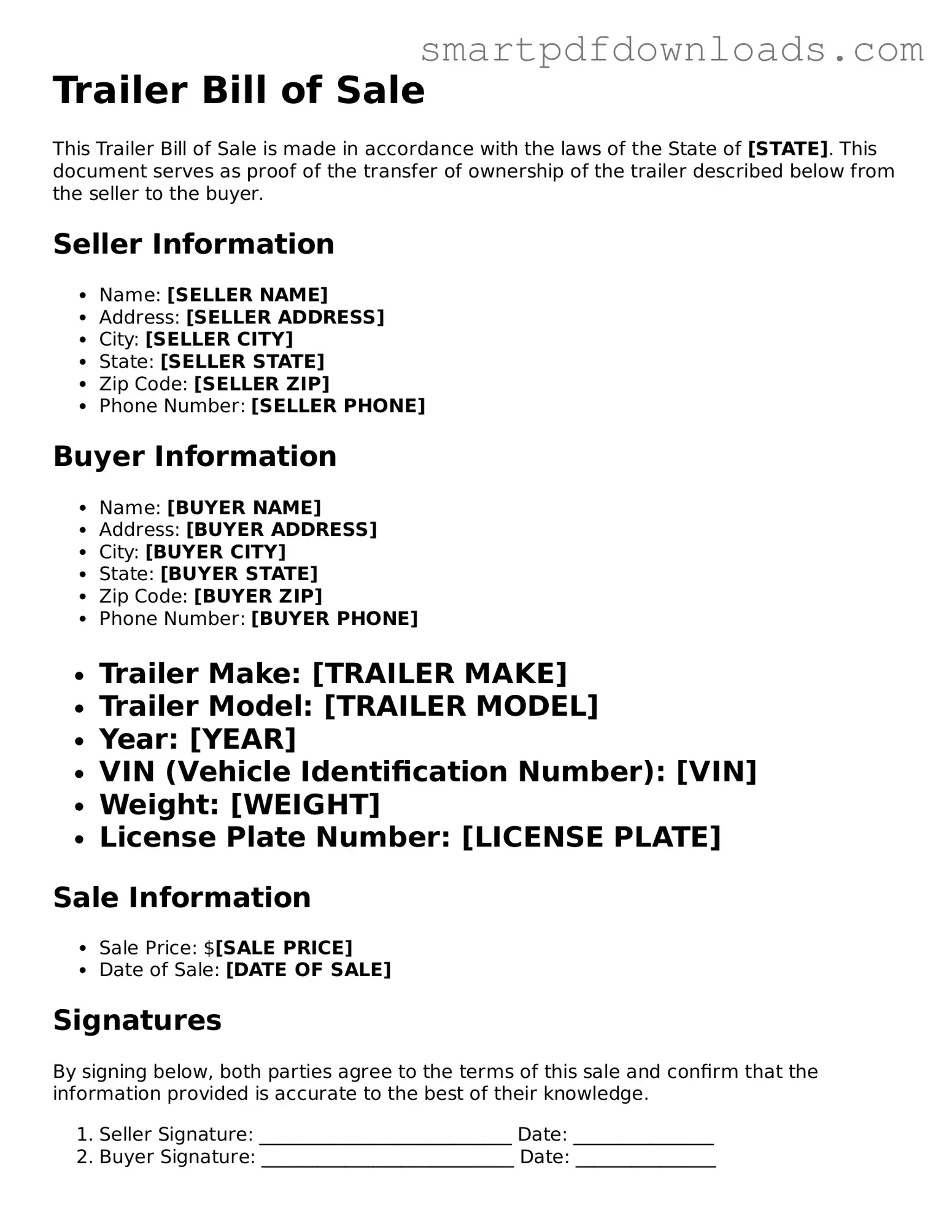Free Trailer Bill of Sale Form
The Trailer Bill of Sale form is a legal document used to transfer ownership of a trailer from one party to another. This form outlines essential details such as the buyer's and seller's information, trailer specifications, and the sale price. Completing this document ensures a smooth transaction and provides proof of ownership for the new owner.
Edit Trailer Bill of Sale Online

Free Trailer Bill of Sale Form
Edit Trailer Bill of Sale Online

Edit Trailer Bill of Sale Online
or
⇓ PDF File
Finish the form and move on
Edit Trailer Bill of Sale online fast, without printing.